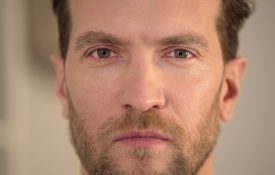-
How to Be a Better Parent
Scientific American: God help me, being a parent is hard. It's not necessarily the basic Abraham Maslow's “hierarchy of needs” stuff that gets me, although providing for one's family is a daily pressure. No, what makes parenting so tough (at least for me) is the knowledge that I—quirky, flawed, only human me—am responsible for how my kids will “turn out.” There are 58,000 parenting books for sale on Amazon right now and thousands of parenting studies published every year. Sometimes I think I haven't read enough of them; other times I think I've read way too much. Either way, here are three bits of research-backed advice that have resonated with me recently. I hope they will help you, too.
-
Medical Resources Allocated Equally Across Groups, but More Efficiently Across Individuals
People make dramatically different decisions about who should receive hypothetical transplant organs depending on whether the potential recipients are presented as individuals or as part of a larger group, according to new research published in Psychological Science, a journal of the Association for Psychological Science. The findings show that when recipients are considered in groups, people tend to allocate organs equally across the groups, ignoring information about the patients’ chances of success.
-
Social Constraints Can Spark Creativity in Diverse Groups
It’s often assumed that creativity is unleashed by removing constraints, but new research finds that establishing clear expectations for social interactions actually encouraged creativity among mixed-sex work groups. A team of psychological scientists, led by Jack Goncalo of Cornell University, wanted to test whether a politically correct environment would dampen people’s creativity — or whether clear social boundaries would actually encourage diverse groups of people to share novel ideas.
-

Attention to Angry Faces May Predict Future Depression
Using eye-tracking technology, researchers have found that women with a history of depression tend to spend more time looking at the angry faces compared to women with no history of depression.
-
Don’t be fooled by a know-all
The Guardian: I’m not the first to point out that the rise of smartphones has killed one rather pleasurable form of conversation – the kind that involves confidently chuntering on about subjects you dimly recall, or know nothing about, as if you were really an expert. ... Yet the internet isn’t about to end the widespread human tendency to claim to know about topics you don’t – and even sincerely to believe that you know. The easiest way to demonstrate how prevalent this is, as outlined in a forthcoming paper in Psychological Science, is to ask people about “impossible knowledge” – facts they couldn’t possibly know, because researchers made them up.
-
Thirty Million Words Aren’t Enough
Pacific Standard: Thirty million words. That's the gap between what kids from high- and low-income families hear by the time they're three, and it's widely thought to explain socioeconomic disparities in language skills and, later on, academic success. But a recent study puts an age-old twist on that: Quality may matter more than quantity. ... "Yet the quantity of language input is insufficient to account for variations in language development," argues a team of psychologists led by Kathy Hirsh-Pasek.

